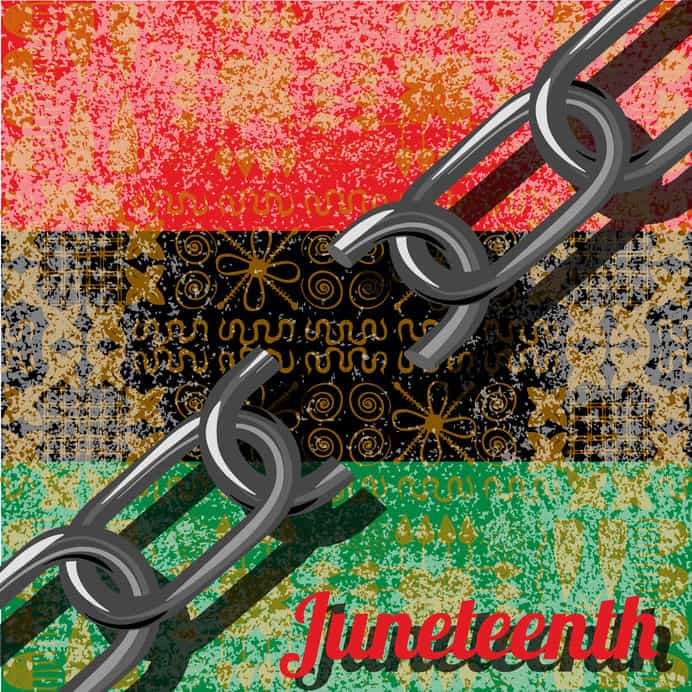Juneteenth

Celebrates the freeing of Black Americans in Texas on June 19, 1865
Origins
Juneteenth (from "June Nineteenth") is a celebration of the freeing of Black slaves—specifically in Texas, on June 19, 1865. What makes this date so special? Well, the history of slavery in the United States can be a bit complicated. To understand the origins of Juneteenth, one has to understand a couple other things.
The first thing is that the Civil War was about slavery. Some people argue otherwise (like that it was about the rights of the states) but most historians agree that slavery was the biggest issue. Debates over whether new states would allow slavery or not, the continued success of the Underground Railroad, and Southern fears about slave revolts are what led the South to secede. The Confederate States say so in their declarations. For example:

Related Links
The people of Georgia, having dissolved their political connection with the Government of the United States of America, present to their confederates and the world the causes which have led to the separation. For the last ten years we have had numerous and serious causes of complaint against our non-slave-holding confederate States with reference to the subject of African slavery. They have endeavored to weaken our security, to disturb our domestic peace and tranquility, and persistently refused to comply with their express constitutional obligations to us in reference to that property... This hostile policy of our confederates has been pursued with every circumstance of aggravation which could arouse the passions and excite the hatred of our people, and has placed the two sections of the Union for many years past in the condition of virtual civil war.
—Georgia's Declaration of Cause for Secession
The second point people need to know is that even with the Southern defeat in April 1865, that didn't necessarily mean slavery wouldn't continue. The Emancipation Proclamation only freed slaves in the states that were rebelling. Despite the great progress Black people made across the South, they still weren't legally guaranteed their freedom.
Union General Gordon Granger arrived in Galveston, Texas in June, 1865. Slavery in Texas remained largely unaffected by the course of the war. On June 19 General Granger would issue General Order No. 3. The order reads:
The people of Texas are informed that, in accordance with a proclamation from the Executive of the United States, all slaves are free. This involves an absolute equality of personal rights and rights of property, between former masters and slaves and the connection heretofore existing between them, becomes that between employer and hired labor. The Freedmen are advised to remain at their present homes and work for wages. They are informed that they will not be allowed to collect at military posts; and they will not be supported in idleness either there or elsewhere.
This support from the army protected the freedmen until the ratification of the 13th Amendment later in the year. During Reconstruction in the South, Black communities began an annual celebration of their freedom, and chose June 19 for the date. It became less common to celebrate when the KKK was at its peak, but it's become a nationwide occurrence now.
Evolution
Observance of Juneteenth has traditionally tended towards church-centered celebrations featuring food, fun, and a focus on self-improvement and education by guest speakers. Although initially associated with Texas and other Southern states, the Civil Rights Era and the Poor People's March to Washington in 1968, in particular, helped spread the tradition all across America—to the extent that Milwaukee and Minneapolis now host two of the largest Juneteenth celebrations in the nation.
Juneteenth Today
The state of Texas made Juneteenth an official holiday on Jan. 1, 1980, and became the first to grant it government recognition.
Due to its spike in popularity over the years, by 2008 nearly half of the US states observed the holiday as a day of remembrance. As recently as 2016, legislation in Maryland officially recognized Juneteenth as a holiday, making a total of 45 states that celebrate it officially. While the rest of the nation still waits for the approval of Hawaii, Montana, New Hampshire, North Dakota, and South Dakota, Juneteenth will continue to be a rising holiday throughout the United States.
